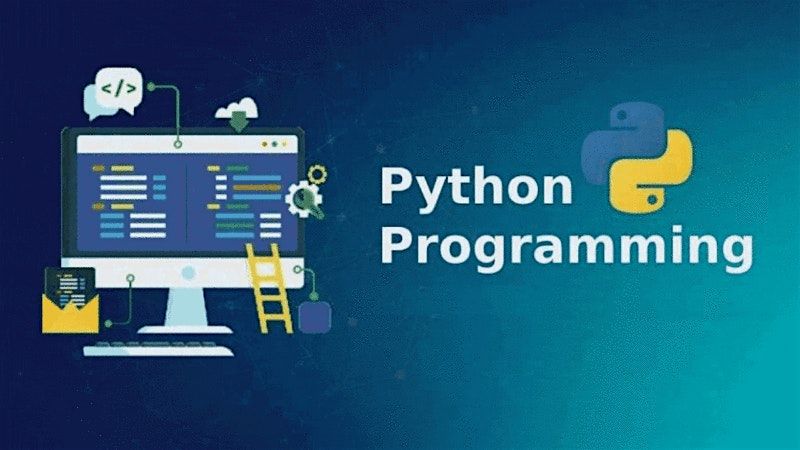
About this Event
Python Programming for Beginners: Course Syllabus
Welcome to the world of Python programming! This beginner-friendly course is designed to help you quickly build a strong foundation in Python. You’ll learn through hands-on coding, real-life examples, and guided practice. By the end of the course, you’ll have the tools and confidence to start writing your own Python programs.
Session 1: Mastering Control Flow and Looping
Overview: In this session, you’ll explore the building blocks of programming logic: making decisions and handling repetitive tasks. You’ll learn how to control the flow of your program, make it interactive, and write code that adapts to different situations.
Learning Objectives:
- Introduction to Booleans and Conditionals:
Understand how Python uses True and False to make decisions.
Learn to write conditional statements using if, elif, and else to manage program flow based on different conditions. - Using if-Statements to Build Logic:
Confidently manage decision-making within your programs, such as responding to user input or checking conditions. - Loops: Automating Repetitive Tasks:
Learn how to use for loops and while loops to automate repetitive tasks, like processing lists or counting numbers. - Advanced Iteration:
Master the enumerate() function to track loop counters efficiently.
Use zip() to iterate through multiple collections (like lists) simultaneously, making your code more dynamic.
Practical Applications of Booleans:
Explore how Booleans can be used to filter and conditionally extract data from lists, improving your ability to work with real-world data sets.
Hands-On Exercises:
- Write a program that takes user input and responds based on conditions (e.g., checking password strength).
- Practice using nested loops to process multi-dimensional data, such as creating a multiplication table.
- Use enumerate and zip to handle multiple lists in parallel (e.g., pairing names with their corresponding ages).
By the end of Session 1, you will:
- Be able to write simple programs that make decisions and handle repetition.
- Understand how to iterate through data efficiently with loops.
- Know how to apply Python logic in practical, real-life scenarios.
Session 2: Writing Functions and Optimizing Code
Overview: In this session, you’ll dive into creating your own reusable code with functions, and learn how to make your programs more efficient using Python’s powerful comprehension techniques. This will allow you to write cleaner, more organized, and faster programs.
Learning Objectives:
- Creating Custom Functions:
Learn how to define and call your own functions to reuse code and make your programs modular.
Understand the importance of parameters and return values for creating dynamic, flexible functions. - Using Docstrings for Clear Documentation:
Write meaningful docstrings to explain your functions’ purpose, inputs, and outputs, making your code easier to understand and maintain. - List and Dictionary Comprehensions:
Discover Python’s list comprehensions and how to use them to build lists in a concise, readable way.
Learn about dictionary comprehensions to efficiently transform key-value pairs into new data structures. - Optimizing Your Code:
Explore how comprehensions can replace loops for more compact and readable code without sacrificing performance.
Hands-On Exercises:
- Write reusable functions to perform tasks like converting temperatures, calculating discounts, or validating emails.
- Use list comprehensions to filter even numbers from a list or create a new list based on existing data (e.g., doubling values).
- Practice creating dictionary comprehensions to invert key-value pairs in a dictionary or filter entries.
By the end of Session 2, you will:
- Be able to create and use functions to break down complex problems into manageable parts.
- Know how to document your code for future reference.
- Master Python’s comprehension syntax to write concise, efficient code.
Key Takeaways from the Course:
- Practical Coding Skills: You’ll gain essential Python programming skills that can be immediately applied to real-world tasks and projects.
- Hands-On Learning: Each session is packed with interactive coding challenges to reinforce your understanding.
- Building Confidence: By the end of the course, you’ll feel comfortable writing Python code, solving problems, and exploring more advanced topics independently.
Why This Course is Perfect for Beginners:
- No Prior Experience Required: The course is designed for absolute beginners, so no programming background is needed.
- Step-by-Step Learning: Concepts are explained clearly and broken down into manageable steps, ensuring you understand each topic before moving on.
- Interactive Practice: You’ll get plenty of opportunities to practice and apply what you learn through hands-on exercises.
By the end of this course, you’ll be ready to tackle more advanced Python topics and use your new skills to create projects of your own!
Event Venue & Nearby Stays
New York, United States
USD 99.00
